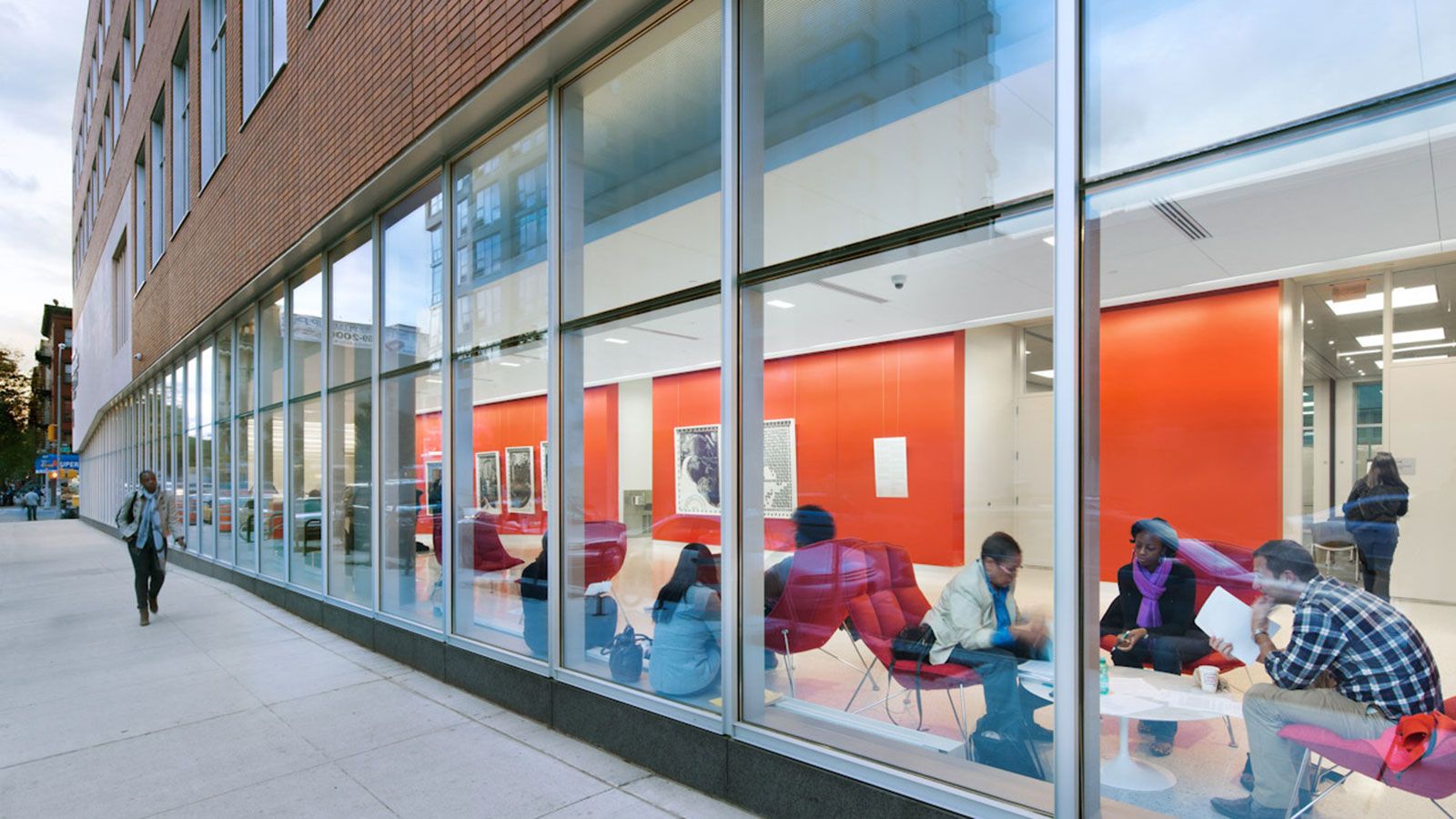Program Overview
The MSW degree is offered as a traditional Two-Year Full-Time, Accelerated Full-Time, One-Year Residency, Accelerated One-Year Residency, and an Advanced Standing Program. MSW students are also provided the option to choose a specialization in a field of practice.
Students must obtain a total of 60 credits to complete the MSW degree.
Two-Year Full-Time Program
The Two-Year Full-Time Program is designed for students who can devote themselves to full-time academic and field-based study. Students are expected to attend classes two days a week with their pathway cohort, and to attend their field placement three days a week during standard business hours.
Students usually complete the 60 credit program in five semesters plus two intervening summers.
Accelerated Full-Time Program
The Accelerated Full-Time Program is designed for students ready to participate in an intensive, year-round learning experience. Students can complete the 60-credit program in five semesters. Because of its uninterrupted trajectory and intensive academic nature, the Accelerated Full-Time Program is among the most very rigorous programs offered at the Silberman School of Social Work.
The only method available in this program is Clinical Practice with Individuals, Families, and Groups.
One-Year Residency (OYR) Program
Launched in the early 1970s to serve New York’s dedicated social service workers who could not pursue graduate education while working, the OYR Program ensures that students can obtain the MSW while continuing to work. It does this by integrating the student’s professional environment with their MSW degree path.
Students usually complete the 60 credit program in five semesters plus two intervening summers.
Accelerated One-Year Residency (OYR) Program
This accelerated version of Silberman’s One-Year Residency (OYR) Program (see previous) is an intensive program for OYR students prepared to participate in a highly rigorous curriculum. Students can complete the 60-credit program in five semesters.
The only method available in this program is Clinical Practice with Individuals, Families, and Groups.
Advanced Standing Program
This program is designed for students who have earned a baccalaureate in social work (BSW) degree from a Council of Social Work Education (CSWE) accredited social work program. Applicants must have received the BSW degree within the five years prior to application. Applicants accepted into the program receive credit for the first year of the MSW program. Applicant must meet all other admissions criteria for acceptance into the graduate social work program at Silberman. Students can complete the 36 credit program in three semesters.
The available methods in this program are Clinical Practice with Individuals, Families, and Groups and Community Organization, Planning, and Development.
More About MSW Degree PathwaysAll MSW students at the Silberman School of Social Work concentrate (major) in one of three Practice Methods. A student’s chosen Practice Method serves as the foundation of their academic and professional experience throughout their time in the program. MSW Applicants select one Method when applying to the program.
The three Practice Methods offered are:
Clinical Practice with Individuals, Families and Small Groups (CPIFG)
This Method introduces students to agency-based clinical practice in the urban environment. Clinical assessment and therapeutic interventions are taught from a biopsychosocial perspective. Clinical Practice prepares students through evidence-based theory and practice to provide psychosocial care to individuals, couples, families, and small groups. Clinical social workers help these clients to enact psychological and interpersonal change, increase their access to social and economic resources, and maintain and enhance their capacities and strengths. For a list of core CPIFG courses, please see MSW Program Curriculum.
Community Organizing, Planning and Development (COP&D)
This Method develops students’ competence for community-based social work practice. It stresses the skills, techniques, and strategies needed to mobilize both people and resources to solve basic social problems at either the neighborhood or citywide level. Focus is placed on social planning and social reform, as aspects of social work practice toward alleviating individual and family problems. Education, training, and field practicums are developed in collective action, advocacy, program evaluation, proposal writing, community outreach, legislative advocacy, and other vital, diverse organizing roles. For a list of core COP&D courses, please see MSW Program Curriculum.
Organizational Management & Leadership (OML)
Students in this Method are prepared to assume varied management positions in social agencies (including the traditional supervisory, middle management, and executive positions) as well as jobs as program planners and analysts, staff trainers, program directors, or budget analysts. They will develop conscious and strategic use of self in managing the complex tasks of program managers. Students seeking to concentrate in OML should have some prior management experience either in social work or at a human services agency. For a list of core OML courses, please see MSW Program Curriculum.
More About the MSW CurriculumThe School of Social Work offers students the option to choose a specialization in a field of practice (FOP). As a reflection of both our commitment to a social justice and human rights framework and the nature of the service systems where we do our work, the School has chosen the following practice specializations for your consideration.
Each of these areas is linked to a universal human right, including:
- Aging
- Child Welfare: Children, Youth, and Families
- Criminal Justice
- Global Social Work and Practice with Immigrants and Refugees
- Health
- Mental Health
- School Social Work
- Sexuality and Gender
- World of Work
You must meet the following minimum requirements in order to be considered for admission. Meeting these minimum requirements does not guarantee acceptance to the program.
- Bachelor’s degree from an accredited college or university
- Minimum undergraduate GPA of 3.0
- Official transcripts from all previously attended colleges
- Statement of Purpose (Recommended 3-4 pages)
- Two Letters of Recommendation (Professional or Academic)
- Non-refundable $75 application fee. If you are currently a Hunter student and plan to apply to the program the following semester, your application fee may be waived.
Additional criteria may be required depending on the specific MSW degree program for which you seek admission. Please review the Admission Requirements listed on the department's website.
More About Admission Requirements
